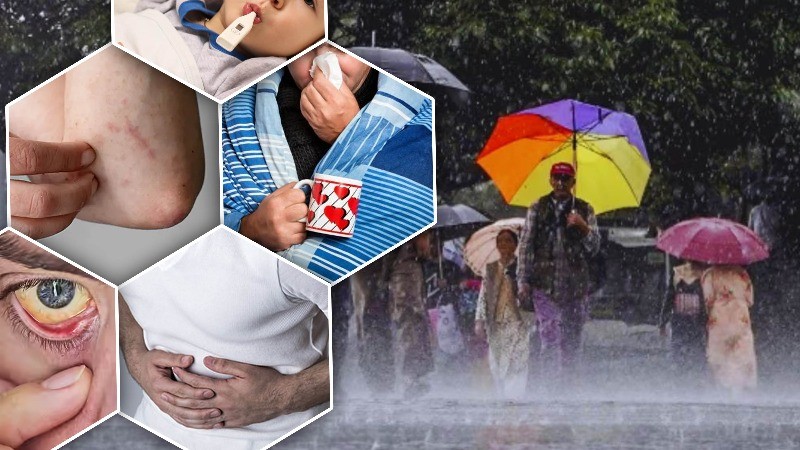
Monsoon is in full bloom, with rains splashing over every part of the country. It's also time to backpack and travel places. But with the changing weather, food, and water all around you, there is also a high risk of infections. Often ending in long-drawn illnesses like typhoid and cholera, and a severe impact on gut health. Lack of hygiene, poor sanitation, improper food, and unsafe drinking water all contribute to the cause of infections. To combat infections, one must follow an approach that involves complete 'safety' of food, water, and hygiene. Here is how:
Water is the root cause of most infections during monsoons. That's why one needs to be more cautious during this season. Firstly, you must drink filtered water only. You can also have properly boiled water. Boil it for at least 5-7 minutes so that germs are killed. Also, take care of storage. Make sure that the place and container are clean and covered.
Refrain from drinking untreated water while you are travelling or eating in outside spaces.
Personal and social hygiene can save your health and wealth. You just have to be a little stricter during monsoons. Like, keep washing your hands more than usual, that too with soap and water for at least 20-30 seconds when you come from outside, before you eat, and after you use the washroom. It is handy to keep alcohol-based sanitizers with you when you cannot wash your hands frequently. You should also avoid touching frequently touched surfaces. Practicing hand hygiene reduces the risk of various infections.
What you consume is not healthy unless treated safely. Therefore, check properly while buying your groceries, especially if it is leafy or cruciferous vegetables. Then, thoroughly wash all your fruits and vegetables before eating. Do not eat them raw or undercooked.
Moreover, to avoid contamination, avoid eating street food that's uncovered and not made or served with hygiene.
Keep everything clean around you, from the living room to the dining space, kitchen, and toilets. Use disinfectants to clean surfaces, floors, and washrooms. Make sure that dishware, utensils, cooking items, and storage containers are clean before use. Do not let any clothes remain unwashed or wet for long.
Get yourself vaccinated for cholera, typhoid, and Hepatitis A before the monsoon begins. This should be done at least six weeks prior. Vaccination acts as a defence beforehand, so that at least some illnesses stay at bay.
A nutritious and balanced diet, which is filled with essential vitamins like Vitamin A, C, iron, and zinc, is a must. Add your diet with some yoghurt, some fermented and fiber-rich foods that are effective for gut health. Have fresh food only, and keep yourself hydrated.
Apart from all this, if you still face any health issues, then take early action. If there are any signs of loose motions, fever, vomiting, or anything else, then do consult a doctor immediately. Treat it then and there before it turns into a health concern.
With this, you are ready to take over the monsoon this season. With these small tips, you can enjoy your pakodas, travel treks, and daily life without any health issues. Happy monsoon all!